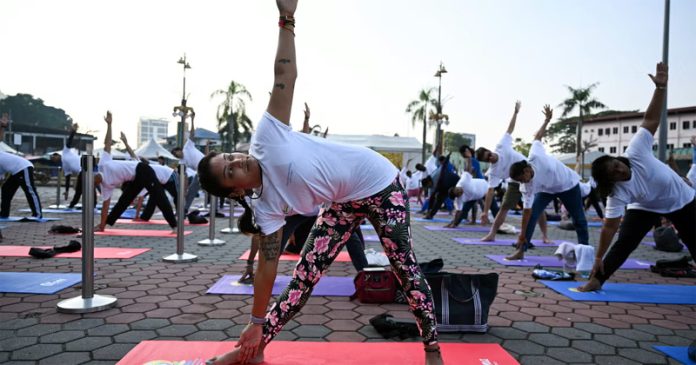NEW DELHI, Nov 24 : Yoga may help reduce the frequency of seizures, anxiety and feelings of stigma that frequently comes with having epilepsy, a new study by Delhi AIIMS said.
People with epilepsy often face stigma that can cause them to feel different than others that can have a significant impact on their quality of life, said Dr Manjati Tripathy, head of department of Neurology at AIIMS said.
“This stigma can affect a person’s life in many ways including treatment, emergency department visits, and poor mental health. Our study showed that doing yoga can alleviate the burden of epilepsy and improve the overall quality of life by reducing this perceived stigma, ” Dr Tripathy said.
The study has been published in the medical research journal, Neurology.
People with epilepsy with an average age of 30 in India were looked at for the study.
Stigma was measured based on participants’ answers to questions about being discriminated against, feeling different from other people and whether they feel they contribute to society.
The scientists then identified 160 people meeting the criteria for experiencing stigma. Participants averaged one seizure per week and on average took at least two anti-seizure medications.
Then subjects were selected randomly to receive yoga therapy or ‘sham yoga’ therapy. Yoga therapy included stretching exercises (‘sukshma vyayama’), breathing exercises (‘pranayama’), meditation and positive affirmations.
We reported that people doing yoga were more likely to have reduced perception of stigma.
“We also discovered that people who did yoga were more than four times as likely to have more than a 50 per cent reduction in their seizure frequency after six months than the people who did ‘sham yoga’.
“There was also a significant decrease in anxiety symptoms for those who did yoga compared to people who did not. We saw improvements in the quality of life measures and mindfulness,” Dr Tripathy said. (PTI)






